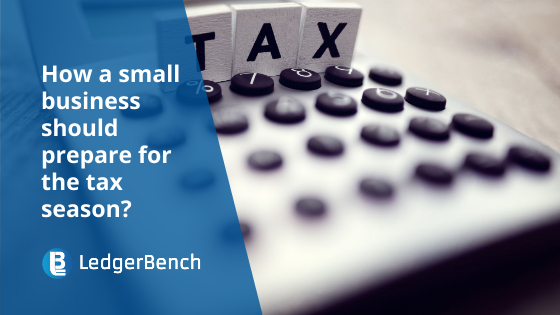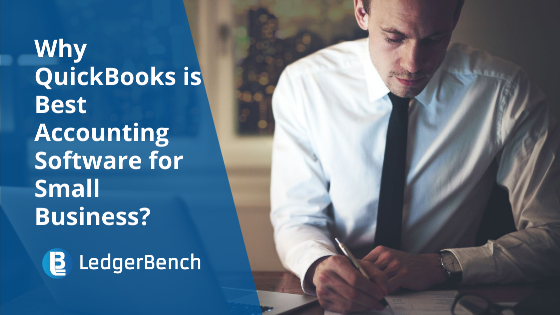
Accountants, Accounting, Accounting Services
‘It’s 28th today, shit man still a week to go before my salary gets credited!!’
Every working professional has been in this spot. And unarguably, the reason remains the same-’Poor Accounting’. Well, if you are wondering what has accounting to do with this then you are still in your learning stages. However, you may have witnessed either your mom or dad noting down all the monthly expenses and preparing a budget accordingly. Yes, this is also an accounting practice.
Accounting isn’t just a profession, it is a trait that every individual needs to inherit. Without proper accounting of your financials, you will always keep wondering, ‘Where exactly does all my money go?’
The same goes for businesses as well. Every business, irrespective of its size, needs efficient accounting practices to make sure they aren’t lagging behind their competitors and always wondering about managing their finances. This is where the need of certified Accountants and Accounting firms arises since, “An Accountant is someone who knows the cost of everything and the value of nothing.” However, hiring an Accountant isn’t as easy as it sounds. You have to take various factors into account.
So, if you are searching for an Accountant, here are a few tips that can be of help to you.
Identify your Accounting Needs
The first and most vital step when hiring an accountant is to make a note of your accounting needs. Accounting isn’t just one task, it is a collection of various processes and each process needs experience and expertise. Here are a few Accounting tasks to take into consideration before you hire an Accountant:
- Business advisory services
- Accounting and Bookkeeping
- Tax advice
- Auditing
- Financial analyst
It would be wise if you know what Accounting services are you exactly looking for instead of jumping straight in.
Post a job with the relevant keywords
In today’s digital world, keywords play a vital role both for the searcher as well as the publisher. Therefore, once you know exactly what you want, then comes the task of posting the job that includes the right keywords so that it can be found easily by the searcher. Use terms like Accounting, Bookkeeping, Bookkeeper, Accountant, Auditor, etc to increase its reach.
When posting an Accountant requirement job, make sure you mention your requirements and budget correctly since it all comes down to these 2 factors.
Leverage the power of Social Media
While you can advertise the job vacancy on various job portals, it is not necessary that you will get a response. In such cases, leveraging the potential of social media can come in handy. LinkedIN which is a social network is considered to be the largest platform where professionals from all around the world connect and share their experiences. It is also one of the best places to market your business as well as look for potential Accountants, when hiring.
It can help you build a professional network and/or find relevant referrals from other industry experts.
Conduct proper research
Accounting is a very crucial business process and you simply cannot handle all your financial data to someone just based on their online portfolio. Vetting candidates/ accounting firms before you make a decision is very important especially when in this digital era it isn’t hard enough to build a fake online reputation. Verify their work experience and qualifications that showcases their accounting skills.
Look for qualifications like CPA certification, their work experience with various accounting software, etc. Aso, go through online reviews and look for their genuinity before you move forward.
Shortlist according to your budget and requirements
Once you are through with the above processes, it comes down to shortlisting the best candidates according to your budget and accounting needs. While you may be looking for bookkeeping roles, an auditor may not be the perfect fit for the role. Therefore, before you invest time and money into hiring an accountant, make sure that they fall in the right category and fulfill your accounting needs.
Also Read – Common Accounting Challenges Faced by Accountants and How to Overcome?
Conduct an interview
Now since you have your best candidate shortlisted on paper, it’s time to conduct an interview and see if everything is for real. Try to focus on the overall personality of the accountant like his analytical and mathematical skills, attention to detail, working style, business acumen. After all, she is going to be handling your finances that will eventually reflect as your business growth.
Onboarding
The final onboarding stage concludes the hiring process. Make sure the new Accountant(firm) is welcomed and has all that they need to get started. Ensure that they are well-aware of your requirements, goals and objectives and are on the same page at the end of the day.
Conclusion:
Hiring the right Accountant is very important after all you are going to hand over all your finances to the man. Follow the above steps and make sure you have employed the best man.

Accountants, Accounting, Accounting Services, Tax
Preparing and filing taxes can be a real hustle to deal with. Not everyone enjoys preparing their taxes. But one can’t run away from the responsibilities of filing taxes. Every year the tax season arrives and with it comes the complexities of keeping up with the compliance’s along with the workload of handling lots and lots of paperwork.
However, even after knowing that tax preparation isn’t an easy task, many small business owners and self-employed individuals prefer doing it all on their own. And why exactly? Only to save a few bucks. But what they don’t realise is that the value of their time is no less than the value of their money. They spent their valuable time preparing for tax filing. And the sooner they realise this the better. Instead of doing all the hustle and bustle by self, hiring an accountant can be a wise choice. After all, is it always wise to hand over the task to a professional or to make it more relevant, hire someone who does this for a living?
But is there a right time to hire an Accountant to do your taxes?
A question that usually comes up is “When Should You Hire an Accountant to Do Your Taxes?”
Well, let’s find out.
Hiring an Accountant to Do Your Taxes
Paying taxes on-time is every citizen’s responsibility. However, getting tax ready isn’t an easy nut to crack especially if you run a business or are earning more than $500,000 per year. In such cases, it is always wise to hire an accountant who does tax preparation for living. This way you can avoid the penalty of the IRS as well as save your precious hours to invest in your domain.
You’ve recently received an inheritance
There may be cases when you might get your hands on an inheritance. But it can add to your tax filing complexities. Owning an inheritance means you can owe estate tax, inheritance tax or capital gains tax. While you are dealing with the tax complexities of your new inheritance, considering to hire a professional accountant can ease your task. It would be a wise option to let the professional do his/her job.
Also Read About – What is Accounts Payable?
The IRS has contacted you recently:
Be it an individual taxpayer or a business owner filing taxes on behalf of his company, the IRS has the right to contact you in case they find any discrepancies or any other fraudulent activities in your filing. And with little or zero knowledge of the subject matter, such situations can put you in a tough spot. This is another situation where hiring an Accountant can be your best option. An accountant is well aware of the government policies and how they can help you to minimize the penalty in case of under- or over payment.
Planning for your retirement
Hiring personal Accountants can be a great idea to invest in if you are planning for your retirement. These professionals can be any of the following:
- Enrolled Agents (EAs),
- Certified Public Accountants (CPAs) and
- Attorneys
- Registered Tax Return Preparers (RTRPs)
Figure out what your needs are and you want to invest and decide for yourself what’s best for your business. Each of the above highly-skilled professionals can offer you a wide variety of services and solve your various planning and tax return issues..
Consult for Accounting Services for Small Business
Business Advisory:
Over time, the job of an Accountant has always been important to businesses and has evolved into various branches. One such branch is where skilled Accountants can take over business advisory roles for you and help manage your finances with expertise. They can also offer valuable insights on your current financial position and help plan for the future accordingly.
Conclusion:
Accountants affect our everyday lives each day. Millions of jobs depend on an Accountant’s honesty, integrity and professionalism. Therefore, hiring one in times of need is a wise choice and can save you hours of trouble as well as help you deal with the complexities that arise when filing a tax return.

Accountants, Accounting, Balance Sheet, Tax
Recording financial transactions are the top priority for all businesses. While every financial document has its own importance, a Balance sheet is one that defines the financial health of a business entity at a given point in time. The balance sheet of business contains enough financial data of an organisation to determine the growth of the company as well as predict its future expansion plans.
However, accounting mistakes can lead to discrepancies in the balance sheet that can prove to be costly for businesses. Here we will be discussing some common balance sheet mistakes that even professional Accountants and Bookkeepers can make and to avoid them.
Avoiding Balance Sheet mistakes:
Before we hop on to the discussion straight away, here’s a basic understanding of the formula that a Balance sheet operates upon and how each entity contributes:
Assets=Liabilities+Shareholders’ Equity
- Assets – Anything that the business owns and has monetary value
- Liabilities – It includes the debts a company owes to others
- Shareholder’s Capital or Equity- This includes the total amount invested by the Shareholders
You May Also Read – What is Business Continuity Plan?
Common mistakes:
It is a common balance sheet mistake to miss out on recording transactions like personal expenses, inventory, or any other financial transaction. Even professionals can face this situation where a transaction just slips out of their mind.
-
Recording transactions incorrectly
Mistakes are inevitable and a core part of human nature. Many times, business owners and accountants can be in a spot where they unknowingly record a transaction wrong. Don’t worry you aren’t suffering from Dyslexia if you record 71 as 17. It is a common transposition error and can be rectified easily if you double-check the balance sheet. This is why many business owners prefer cross-checking the entries of their bookkeepers.
-
Missing out on recording inventory changes
Have you forgotten to record inventory changes?
Take it easy, it’s a common balance sheet mistake. At times even the easiest tasks are prone to mistakes. Make sure that you are doing your books on a regular basis since too much work can make Jack a dull boy and he can make such mistakes.
-
Classifying data incorrectly
As discussed earlier, the Balance sheet works on 3 primary entities(assets, liabilities, and equity). Inaccurately classifying your transactions can disrupt the balance sheet formula that it works on and can result in major errors. However, this is one mistake that professionals won’t make generally but in any case, the proper classification of business transactions is imperative to avoid such errors.
Business owners who do their books on their own should re-verify the classification of their transactions with an accountant.
How to avoid balance sheet mistakes
The above-discussed mistakes are pretty common and can create data irregularities within the balance sheet. Here’s how you can avoid them:
- Conduct a trial balance before creating your balance sheet
- Review and update balance sheet transactions regularly and double-check them for common errors discussed above
- Keep your financial documents well-organized to avoid any hassle
- It is always advisable to seek professional help
Summing Up:
From obtaining a business loan to better understand your business performance and liquidity position, a balance sheet is a crucial business asset and its importance shouldn’t be overlooked.
Hire a Professional Bookkeeper of LedgerBench and let the professionals do their job while you do the job you’re best at!!

Accountants, Accounting, Virtual Accountant
“Ethics is knowing the difference between what you have a right to do and what is right to do.”- Potter Stewart
Ethics is an integral part of an individual that defines his/her professional ethics. And accounting is one such profession that affects the lives of millions of people each day which makes ethical accounting practices even more important. An accountant’s one mistake (be it intentional or unintentional) can wreak havoc in people’s life.
Enron scandal of 2001 is one such example that is cited as the biggest audit failure and left the Accounting profession questionable.
Therefore, ethical accounting practices are very important as businesses are counting on them to be fair and also it influences the lives of ordinary people to a great extent. Here’s what Ethical Accounting incorporates:
You May Also Read – Why you need a Virtual Accountant for your Business in Year 2020?
Ethical Accounting and How to Practice it:
We are living in a globalized marketplace where Accounting services can be carried out from all around the world. Fair and transparent accounting practices define the honesty and integrity of an Accountant and make sure that they are positively affecting the lives of others. Here are a few reasons to practice Accounting:
- Accounting deals with sensitive financial information
- Accounting mistakes can affect many and can prove to be very costly
- Ethical Accounting ensures healthy and long-term business relationships with your clients
- It allows you to build a reputation and grow your professional network
- Practising Ethical Accounting will help you avoid any legal repercussions
Here the 5 common Ethical Accounting codes
Integrity
There have been examples in the past where the Accounting profession can be driven by illicit gains, however, integrity towards the profession is a must to keep the profession ethical. Accounting firms and accountants should feel morally obliged to keep their reporting accurate and transparent.
Confidentiality
Practising confidentiality restricts Accounting firms to share sensitive information with third-parties including unauthorized personnel of the organization. Sharing information either intentionally or unintentionally is against the ethical accounting code. However, if any information that goes against the public interest should be shared after seeking a professional lawyer’s help.
Also Read – 5 Bookkeeping Issues That are Solved By Outsourcing it to Experts
Independence and objectivity
Objectivity is an ethical code that concerns an individual accountant’s whereas Independence is an Accounting attribute. Objectivity is an accountant’s mental state to be unbiased in his/her judgment and shouldn’t be driven by personal gains or someone else’s influence. Independence is what defines the objectivity of the Accounting profession as a whole.
Competence
Accounting firms and accountants should be well-aware of the latest technology trends while they adopt the best industry practices by continuously upskilling. Accounting professionals should be trained well to keep up with the industry norms and carry out their responsibilities while following the ethical code of competence.
Professional Behaviour:
No profession is ever complete without the commitment to practice professional behavior while respecting the profession and complying up with the laws and regulations of their profession. Accounting Services need to ensure that they don’t negatively impact the profession.
Wrapping Up:
Accounting profession is a sophisticated profession where mistakes can be costly. Also, professionals might get distracted to move up the ladder quickly by practicing illegal means, however, following ethical accounting is always the right way to be successful in the long-run while you don’t put your reputation at stake.

Accounting, Small Business, Tax, Tax Preparation
Business and tax are two inseparable entities that can’t stay away from one another for long enough. Every year the tax season arrives and with it comes the tax filing complexities. Even though the tax season arrives yearly it is advisable to work on it all throughout the year else you’ll end up creating a mess with excessive workload to handle. In this post, we will take a deeper look into How to do tax preparation for small business for tax season efficiently.
Small Business preparation for Tax Season
-
Keep organized and updated throughout the year
Preparing for tax season isn’t a task that needs to be done only when the filing season is near. It is a process that should be well organized throughout the year. Keeping your financial position up-to date will not only make it easy for you to be well-prepared in advance but also ensure that you have your financial state at your disposal at all times so that you can make business decisions accordingly.
A professional bookkeeper can help small business owners in keeping the financial work organized all throughout the year, making it easy when the tax season arrives.
According to the financeonline.com, “21% of SMB owners feel that they are not knowledgeable enough about accounting and finance”. However, many small business owners avoid seeking professional help when preparing and filing taxes. While small businesses can save a handsome a few bucks if they don’t hire a professional, it can also backfire in many ways. As said above, preparing for tax season is a continuous process that requires tracking and recording of financial transactions throughout the year, SMB owners who prefer taking care of their Accounting and Bookkeeping by themselves can end up making mistakes as well as spend their valuable time doing something that they shouldn’t be doing.
Also, if you hire a professional Accountant who is more qualified to advise you on tax matters, you can save more money than you can lose if you do it by yourself.
Looking for Top Financial Preparation Services?
-
Separate business from personal expenses
While many business owners do spend from their own pockets, they should keep the expenses separate as it not only simplifies the process of managing finances but also helps in claiming tax relief when the tax season arrives.
-
Know which business tax return you need to file
Small Businesses can fall under many different categories like Limited Liability Partnership, Limited Liability Company, Single Member LLC or Sole Proprietor. And each category has it’s different set of rules and tax rates. Therefore, business owners need to classify their business before they go for filing their tax return. Businesses can lose a significant amount of capital as they could end up overpaying taxes, failing to classify their business.
Technology has made our lives easier and the Accounting profession isn’t new to it. Using Accounting software like QuickBooks can help small business owners automate their day to day tasks and keep the financial records organized while they are safe and secure under multi-layer data encryption that accounting software uses.
Summing up:
Tax preparation for Small Business – Preparing for tax season isn’t as difficult as it sounds. All that needs to be done is keep the financial processes well-organized all throughout the year. While business owners have other core responsibilities to handle, they can hire a professional bookkeeper to maintain their books.

Accounting, Small Business
We are living in a smart age where technology drives us to become better at our work each day. Technology has completely transformed how we used to work. Tasks that required hours of manual and mental work a decade ago, can now be completed with just a click. Each and every industry is benefiting from this technological advancement and Accounting & Bookkeeping industry is one of them that is of concern to us.
Accounting and Bookkeeping is an ever-evolving landscape that has adapted pretty well to the technological boom. From the manual paperwork to using Excel to using Accounting software, the Accounting industry has come a long way.
Accounting software is application software that can perform various accounting and bookkeeping tasks like a record: financial data of a business, payroll, accounts payable, accounts receivable, and many more. It can also reduce bookkeeping discrepancies that can prove to be costly. Accounting software varies widely with the functionalities they offer and are designed in accordance with the business requirements(small business and large business requirements can vary widely).
However, when it comes to the best Accounting software for small businesses, the one name that pops up instantly is ‘QuickBooks. According to acecloudhosting, QuickBooks has around 800M global small businesses and self-employed customers, and 56M prospects visiting QuickBooks every year. But what makes QuickBooks best for small Business. Here are a few key features that make QuickBooks the stand-out Accounting Software for small businesses:
Features of QuickBooks for Small Business:
Mainly QuickBooks offers two products that are:
QuickBooks Desktop which is a one time purchase software that is installed on your computer and offers robust inventory management, job costing, and industry-specific features and reporting.
QuickBooks Online offers quite similar features to the Desktop version with the major difference being that it is a cloud-hosted platform.
However, our concern is QuickBooks Online which currently serves 4.5 million global customers with a net add of 1.1 million new customers in FY’19.
You May Also Read – Top 10 Free Invoicing Software for Small Businesses
Key Features of QuickBooks:
One of the features that make QuickBooks Online the best Accounting software is that it automates daily tasks like handling recurring invoices, bill payments, payment reminders, sync bank, and credit card transactions data; bank reconciliation, and many more such tasks, thereby saving time as well as avoiding human error.
QuickBooks further offers excellent reporting with predefined templates available like general ledger, trial balance, 1009 transaction reports, P/L templates, etc. Moreover, it offers graph features that can be used to analyze data easily and make business decisions based on the same. It also allows you to schedule business emails and ease off the manual workload.
QuickBooks Online offers email invoicing features along with other features like accepting online transactions, e-signatures and saves time. You can optimize emails for mobile devices as well as syncs easily with Gmail accounts making it easy to send invoices via your Gmail account.
QuickBooks Online can be integrated with many third-party apps and software that you may be already using. Some of the popular integration include CRMs, email, e-commerce platforms, payment processing, time tracking, payroll services and many more
QuickBooks Online also comes with a mobile application that makes it easy to be accessed from anywhere in the world, using your mobile device. You can do the following using the QuickBooks Online mobile app:
- Create, customize, send and track invoices
- Click photos of receipts and attach them to your expenses
- Reconcile transactions
- View customer information, add new customers and message customers directly from the app
- View data such as your account balance, accounts payable, accounts receivable, profit and loss report, and open current and past due invoices
- Accept online payments
QuickBooks Online Pricing:
- Simple Start Plan that costs $25/month and supports one user.
- Essentials Plan costs $40/month.
- Plus Plan costs $70/month.
- QuickBooks Advanced costs $150/month.
Summing Up:
While there are many Accounting software out there, QuickBooks for Small Business has always stayed a step ahead from its competitors, mainly due to easy accessibility and affordable pricing. So if you still don’t use Accounting software and figuring out which will be the best, just go for QuickBooks Online, it has it all!







